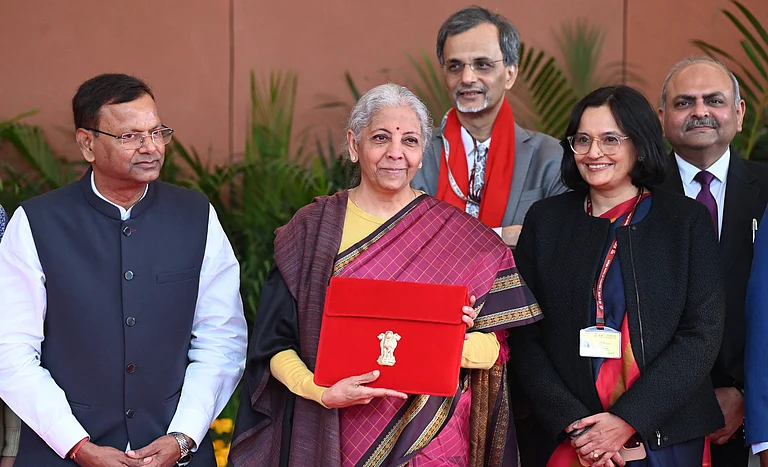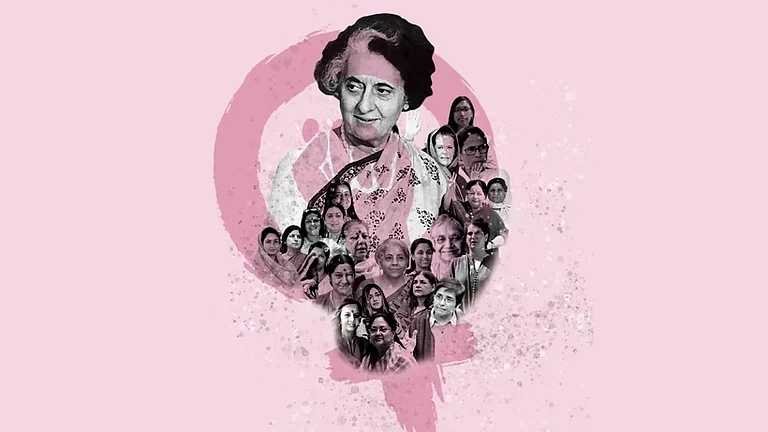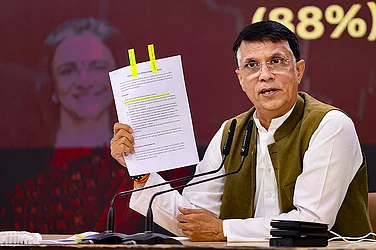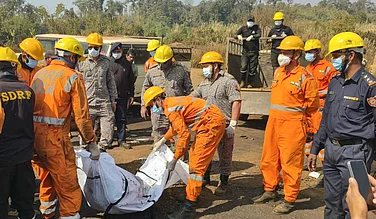On June 25, 1975, a few minutes before the clock struck midnight, the Indira Gandhi-led Congress government declared a state of emergency in India. It was a culmination of the events over a few years that had led the Opposition to ask her to step down, saying absolute power had corrupted her. Gandhi, India’s first female Prime Minister, came to power in January 1966 following the mysterious death of Lal Bahadur Shastri at Tashkent, and is one of the longest-serving Prime Ministers of the country after her father Jawaharlal Nehru and now, Narendra Modi.
“The President has proclaimed an emergency. This is nothing to panic about,” said Indira Gandhi when she first announced the measure on All India Radio. The 22-month-long period is widely considered one of the darkest in the history of India’s democracy. It was characterised by press censorship, suppression of civil liberties and forced sterilisation. Electricity was cut off at media houses to curtail any dissent through news publications and thousands were arrested for opposing the government.
Over the year, the India Gandhi-led government altered laws including the Maintenance of Internal Security Act (MISA), Prevention of Publication of Objectionable Matter Act (PPOMA), as well brought in the 42nd Amendment to the Constitution. Dozens of organisations, including the Rashtriya Swayamsevak Sangh (RSS) and Jamaat-e-Islami, were banned. Indira Gandhi's son Sanjay Gandhi became infamous during this period as he spearheaded a massive sterilisation drive.
Here’s a timeline tracing the events during the Emergency and what led to it:
In February 1971 the Indian National Congress won 352 out of 521 seats in the fifth Lok Sabha Election with a huge 45 per cent of votes. As soon as Indira Gandhi came to power for her third consecutive term, her Indian National Congress (the Requisitionists) )-led Union government got surrounded by controversy due to alleged bureaucratic flaws and corruption. Raj Narain, a freedom fighter who was contesting the election against Indira from Rae Bareilly, lodged a case of electoral malpractice against her.
December 1973: Many students and activists from Gujarat began demonstrating against the Chimanbhai Patel government for being corrupt.
February 11, 1974: Jaiprakash, a socialist commonly known as JP, visited the protesting students and activists after the resignation of Chinmanbhai Patel.
March 18, 1974: JP began a movement-cum-protest in Bihar against the Union Government under Indira, accusing it of corruption.
June 12, 1975: The Allahabad High Court cancelled Indira Gandhi's election to the Lok Sabha in 1971 on grounds of election malpractices, and disqualified her from holding any public office for six years.
June 24, 1975: The Supreme Court gave a conditional stay and allowed Indira Gandhi to remain as Prime Minister while she filed an appeal against the verdict.
June 25, 1975: Indira Gandhi convinced President Fakhruddin Ali Ahmed to declare a state of national emergency under Article 352 of the Indian Constitution citing internal disturbances. She suspended civil liberties and ordered press censorship. All of the opposition leaders, activists, and journalists were taken to jail, including Jayaprakash Narayan, Morarji Desai, Atal Bihari Vajpayee, Raj Narain, and Kuldip Nayar.
.jpg?w=397&auto=format%2Ccompress&fit=max&format=webp&dpr=1.0)
June 26, 1975: Indira Gandhi addressed the nation justifying the need for stringent measures to save the country from internal threats.
July 1, 1975: The Maintenance of Internal Security Act (MISA) was amended to vest the government with wide powers of arrest and to detain people without a trial.
July 4, 1975: The government passed the Prevention of Publication of Objectionable Matters Act to further restrict press freedom.
January 19, 1976: The government declared its much-debated "Twenty Point Program". The program’s goal was to bring in economic reform and eliminate poverty. It became notorious for the oppressive way it was executed, especially the sterilisation drive.
January 1976: The 42nd Amendment of the Constitution is enacted, severely compromising the authority of the judiciary and investing more power in the executive.
January 18, 1977: Indira Gandhi declared that elections would be held in March 1977, an unexpected move since many had assumed that the Emergency would continue ad infinitum.
March 21, 1977: The Emergency was officially lifted.






.jpg?w=594&auto=format%2Ccompress&fit=max&format=webp&dpr=1.0)





















